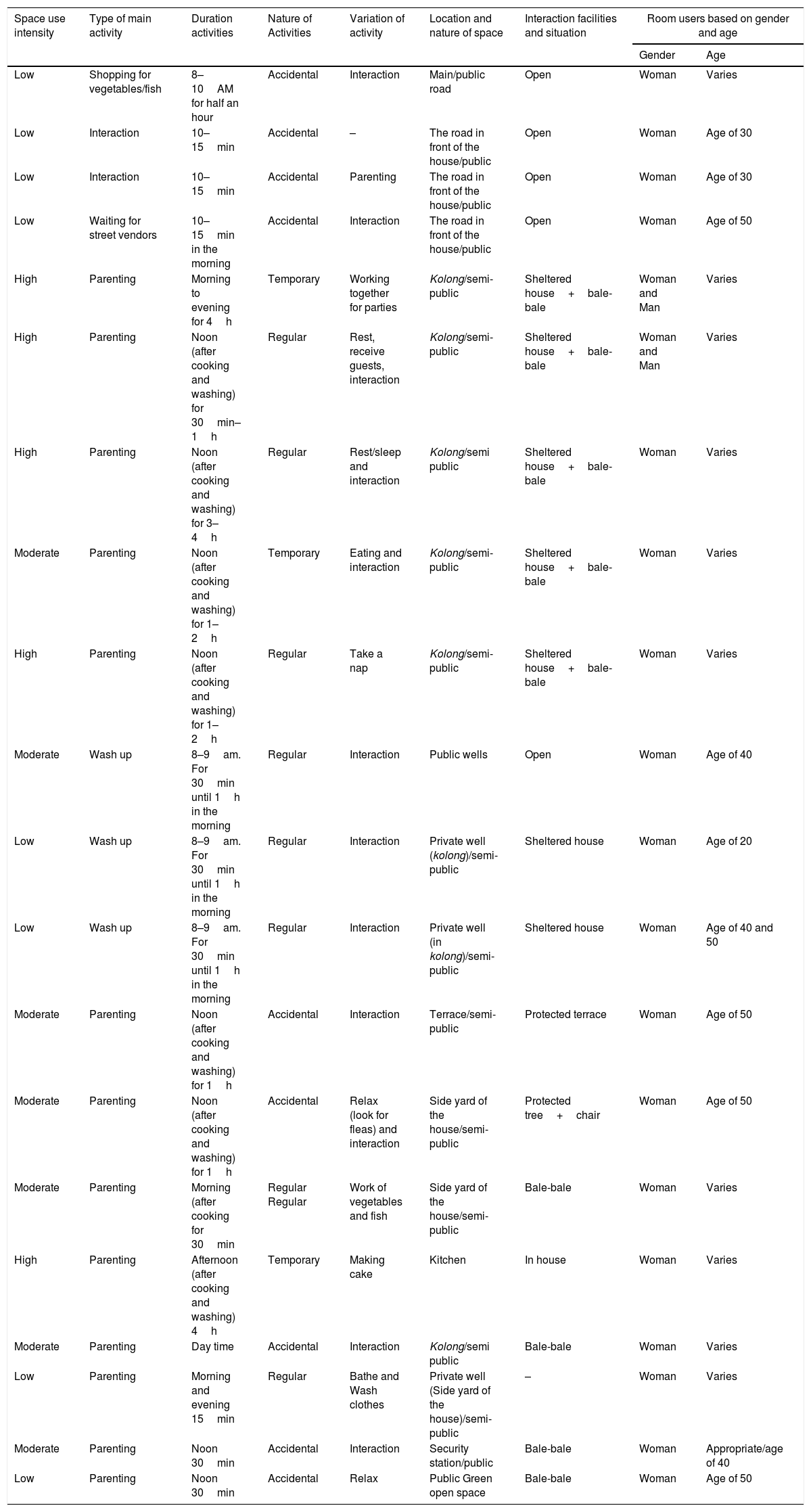Women who have a primary job as housewives will have a lot of time in their families and settlements and do everything related to domestic work. On the other hand, as social beings, women have a desire to interact with each other. In addition, as a fisherman's wife who is often left by her husband to go to sea for a certain period, then as a wife, she must still be able to maintain the continuity of the relationship with the residents in the settlement. If one of these activities is prioritized or ignored, then life will not run harmoniously. Therefore, the purpose of the research is to find out how women can harmonize their desires to act as housewives and as social beings so that it will be positive for their quality of life.
MethodThe method used is behavioral mapping that uses two forms, namely the Person Center Mapping and Place Center Mapping. The population is housewives, while the sample is women who are doing domestic activities and social activities in the village at the Ujung Kassi. This study is using descriptive analysis.
ResultThe results of the study found that women's activity space was influenced by the main types of activities. The main activity is permanent and requires a long duration of time, carried out in a protected and comfortable space. Other temporary activities are only occasionally carried out for certain events with an indefinite duration of time, whereas incidental activities are of short duration and generally occur in public spaces. Time for activities is strongly influenced by the type of activities and place of activity.
Artículo
Comprando el artículo el PDF del mismo podrá ser descargado
Precio 19,34 €
Comprar ahora











